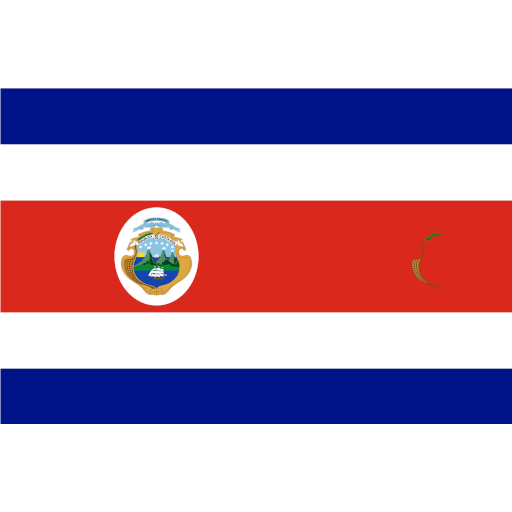We hereby share the following update concerning the reciprocal tariffs announced by the United States—information of particular relevance to companies engaged in foreign trade operations:
Background:
Under the International Emergency Economic Powers Act (IEEPA)—which authorizes the President of the United States to impose economic sanctions in response to threats to national security—the imposition of tariffs on Mexican products has been executed in Mexico’s specific case.
It is important to note that, for both Mexico and Canada, the enforcement of IEEPA provisions implemented in March of this year—particularly in matters related to fentanyl and migration—had not initially affected the two countries. This meant that products compliant with the United States-Mexico-Canada Agreement (USMCA) requeriments would continue to benefit from the treaty, while non-compliant products would be subject to a 25% tariff.
Nevertheless, on July 11, 2025, President Donald J. Trump announced the imposition of a 30% tariff on all Mexican products entering the United States, effective August 1. This measure has not yet been published by any U.S. government official sources.
In addition to the IEEPA-based tariff measures, the U.S. government imposed reciprocal tariffs, of which:
- The 90-day pause established for a potential increase in reciprocal tariffs expired on July 9, 2025.
- However, this period was extended until August 1, 2025, the new date on which tariffs may come into effect if meaningful progress is not achieved in negotiations.
- On July 11 at noon, President Donald J. Trump announced that formal notification letters would begin to be sent to various countries, informing them of the tariffs they would be required to pay. The countries listed include:
Country
|
Tariff Effective as of August 1
|
Current Tariff
|
Tariff Imposed on "Liberation Day" (April 9)
|
Announcement Date
|
| Algeria |
30% |
10% |
30% |
July 9 |
| Bangladesh |
35% |
10% |
37% |
July 7 |
| Bosnia and Herzegovina |
30% |
10% |
35% |
July 7 |
| Brazil |
50% |
10% |
10% |
July 9 |
| Brunéi |
25% |
10% |
24% |
July 9 |
| Cambodia |
36% |
10% |
49% |
July 7 |
| Philippines |
20% |
10% |
17% |
July 9 |
| Indonesia |
32% |
10% |
32% |
July 7 |
| Iraq |
30% |
10% |
39% |
July 9 |
| Japan |
25% |
10% |
24% |
July 7 |
| Kazakhstan |
25% |
10% |
27% |
July 7 |
| Laos |
40% |
10% |
48% |
July 7 |
| Libya |
30% |
10% |
31% |
July 9 |
| Malaysia |
25% |
10% |
24% |
July 7 |
| Moldavia |
25% |
10% |
31% |
July 9 |
| Myanmar (Burma) |
40% |
10% |
44% |
July 7 |
| South Korea |
25% |
10% |
25% |
July 7 |
| Serbia |
35% |
10% |
37% |
July 7 |
| Sri Lanka |
30% |
10% |
44% |
July 9 |
| South Africa |
30% |
10% |
30% |
July 7 |
| Thailand |
36% |
10% |
36% |
July 7 |
| Tunisia |
25% |
10% |
28% |
July 7 |
The U.S. Secretary of the Treasury reiterated that, should no agreements be reached, the mentioned tariffs will come into effect on August 1.
Preliminary agreements are expected to be announced in parallel with certain countries, similar to those already reached with the United Kingdom and Vietnam.
Additionally, President Trump warned of the potential imposition of an extra 10% tariff on countries adopting policies deemed “anti-American,” presumably promoted by the BRICS bloc. However, no specific criteria or scope of this threat have yet been defined.
Current Situation with Mexico
On July 11, 2025, President Donald J. Trump sent an official letter to President Claudia Sheinbaum, announcing the imposition of a 30% tariff on all Mexican products entering the United States, effective August 1. This measure is conditional on Mexico halting the trafficking of fentanyl and the actions of criminal cartels. The document outlined the following conditions and warnings:
- The tariff would not apply if Mexican companies relocate their production to the U.S., with the promise of “permits granted within weeks.”
- It was warned that if Mexico were to impose retaliatory tariff measures, the U.S. would match the percentage and add it to the original 30%.
- It was argued that Mexican tariff and non-tariff barriers generate an unsustainable trade deficit, which is being classified as a threat to U.S. national security.
Key Points Yet to Be Defined:
- The formal issuance of Presidential Executive Orders from the White House remains pending.
- Bilateral negotiations are anticipated to take place before August 1.
- It is not yet confirmed whether products covered under the USMCA will be exempt from this new tariff.
Response from the Government of Mexico:
- Since July 11, a permanent binational working group has been established with U.S. authorities, aimed at protecting jobs and businesses on both sides of the border in light of the newly announced tariffs.
- The group includes multiple Mexican agencies (Ministries of Economy, Foreign Affairs, Finance, Energy, and Public Security) as well as their U.S. counterparts (State Department, Department of Commerce, and the Office of the United States Trade Representative – USTR).
Topics Addressed by the Binational Working Group:
- Security, migration, and border management
- Shared water resource administration
- Bilateral economic relationship
- Proposed U.S. tariff measures
Mexico’s Position:
- The Mexican government expressed its rejection of the proposed tariffs, describing them as an unjust measure.
- It was agreed that the top priority would be to work on an alternative solution before August 1.
- This initiative creates a window of opportunity for Mexican companies to prepare for various scenarios in anticipation of potential trade impacts.
Sincerely,
Antonio Avila
Partner – Foreign Trade
JA Del Río
antonio.avila@jadelrio.com
Guadalajara Office
Lidia Luévano
Director – Foreign Trade
JA Del Río
lidia.luevano@jadelrio.com
Monterrey Office
Jorge Rodríguez
Director – Foreign Trade
JA Del Río
jorge.rodriguez@jadelrio.com
Mexico City Office
J.A. DEL RÍO offers a wide array of specialized consulting services to assist you with these and other matters, in order to ensure that your project complies with the applicable characteristics contained in this agreement.
If you have any questions, J.A. DEL RÍO can provide you with our experts to advise in matters concerning compliance with your legal and tax obligations. Once again, please let us know if we may be of any further assistance to you at: contacto@jadelrio.com.























